
Empowering Neurodivergent Professionals with Copilot

.avif)


.avif)
In the fast-paced workplace, tasks that rely heavily on reading, writing, or remembering details can be daunting for talented employees with dyslexia or other neurodivergent profiles. Microsoft Copilot is changing that dynamic. By harnessing advanced AI, Copilot can summarize long documents, suggest better wording, and automate tedious steps. For example, one user with dyslexia asks Copilot to “summarize this document and simplify the language” – turning a jargon-filled report into clear, plain text. In effect, Copilot acts like “AI for dyslexia,” breaking down information barriers. For decision-makers, this means a smarter way to boost productivity and inclusion; for neurodivergent staff, it feels like having a supportive coworker who lifts the weight of overwhelming tasks.
Key Copilot benefits for neurodivergent teams:
Summarization & Simplification: Copilot can condense long emails, documents, or even video transcripts into concise summaries. This helps dyslexic readers focus on main ideas instead of getting lost in details.
Adaptive Writing Assistance: Drafting emails or reports from a blank page can be intimidating. Copilot can generate first drafts and fix spelling/grammar automatically. By handling the mechanical parts of writing, it boosts confidence to put thoughts on paper.
Smarter Communication: Copilot in Teams and Outlook can summarize missed chat threads or meetings and even adjust tone for different audiences. This ensures fast-paced work stays manageable, reducing anxiety about missing important information.
Personalized Support: Over time, Copilot learns each person’s style and preferences. A GHD engineer with dyslexia said Copilot helped him write “with more clarity and confidence, while also learning his individual style” so the output still felt authentic. This “neurodivergent technology” approach respects unique voices while providing support.
One of the biggest hurdles for neurodivergent employees is cognitive overload – the feeling of being swamped by too much information. Copilot directly addresses this by doing the heavy lifting of information processing. Instead of reading through a 10-page manual, a user can have Copilot highlight key points or create a bullet-list summary. It can even translate complex wording into simpler terms. In practice, Copilot turns an otherwise dense reading task into a quick scan of essentials. Microsoft’s own research confirms this impact: Copilot’s ability to “reduce cognitive load and provide adaptive support” helps neurodivergent workers manage complex tasks. In one EY study, 85% of neurodivergent respondents said Copilot can create a more inclusive workplace by offloading difficult tasks, and 76% said it helped them thrive at work. By automating summarization and simplification, Copilot makes information far more accessible – an example of inclusive AI in action.
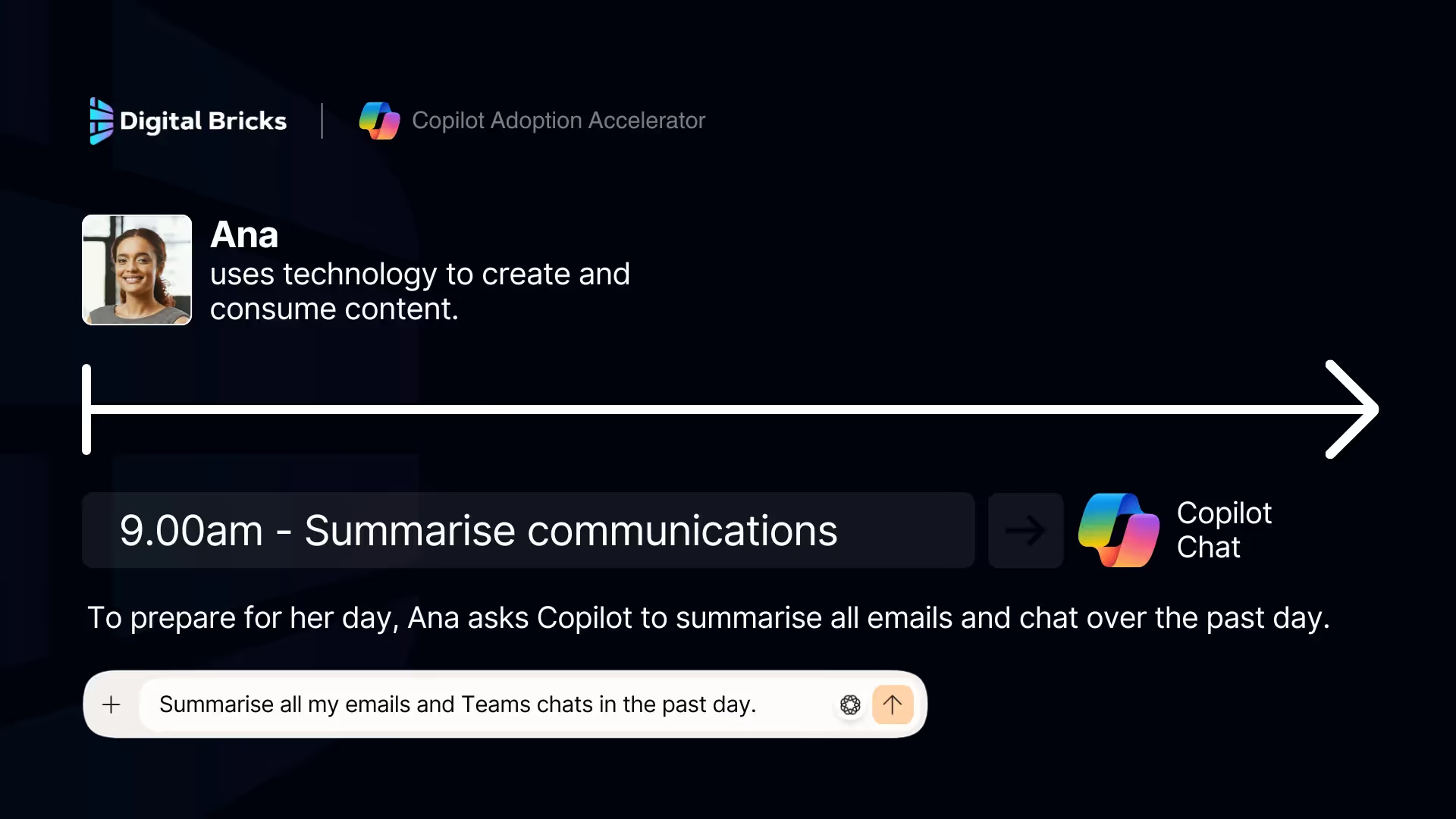
For reading comprehension, Copilot can be thought of as an on-demand assistant or reading coach. Rather than slogging through technical language, a professional with dyslexia can simply tell Copilot to “summarize this document and simplify the language,” and instantly get a clear version. This ensures that important details aren’t missed and that comprehension improves. In education settings, speech therapists have noted that Copilot can quickly gather relevant research and summarize key concepts for dyslexic students, slashing research time from hours to minutes. In the workplace, the same principle applies: Copilot’s summarization features serve as powerful AI for dyslexia, turning long articles, reports, and meeting videos into bite-sized, understandable content.
Writing can be a major source of anxiety for many neurodivergent professionals. Simple tasks like drafting an email or report become time-consuming when you worry about spelling, grammar, and tone. Copilot eases this by acting like a co-writer. It can generate the first draft of an email or refine a document’s tone with a prompt like “create a draft email to [customer] outlining our last meeting” This removes the dreaded blank-page problem. As users refine Copilot’s draft, they can focus on ideas rather than formatting.
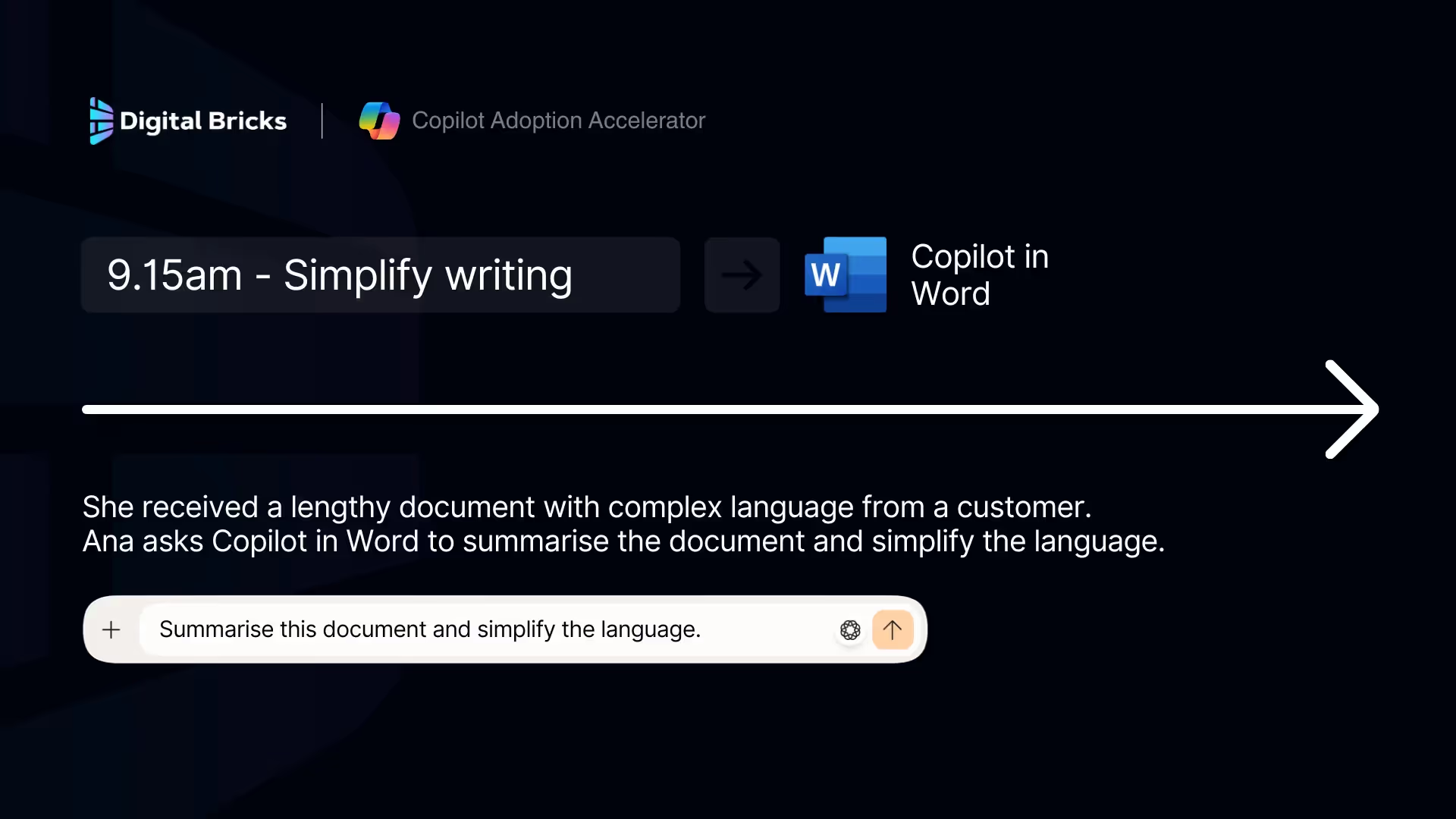
Copilot’s AI-driven grammar and style checks are also invaluable. Australia Post’s Anthony Moufarrege, who has dyslexia, reports that Copilot’s grammar-checking feature is “invaluable” for producing polished outputs. He no longer has to worry about every comma or spelling mistake – Copilot handles it. Similarly, a data professional with autism said using Copilot to draft or reword his emails made him “more comfortable and confident,” because he no longer feared that colleagues would misunderstand his wording. Over time, Copilot even adapts to a person’s individual style so that help feels natural. A GHD engineer explained how Copilot “learns my style of communication” to ensure suggestions still sound authentic. This personalized support empowers writers with dyslexia or ADHD: mistakes are caught automatically, complex sentence structures are smoothed out, and writing becomes an inclusive, collaborative process.
Neurodivergent-friendly technology also shines in meetings and team chats. Copilot can join a Teams meeting (with consent) and automatically generate a recap of key points and action items. Missed a call? You can ask Copilot, “What did we decide in today’s meeting?” and get a quick summary. Similarly, in a running chat thread, Copilot can pull out the gist so you don’t have to scroll through dozens of messages. These shortcuts keep neurodivergent professionals in the loop without the stress of reading every word.
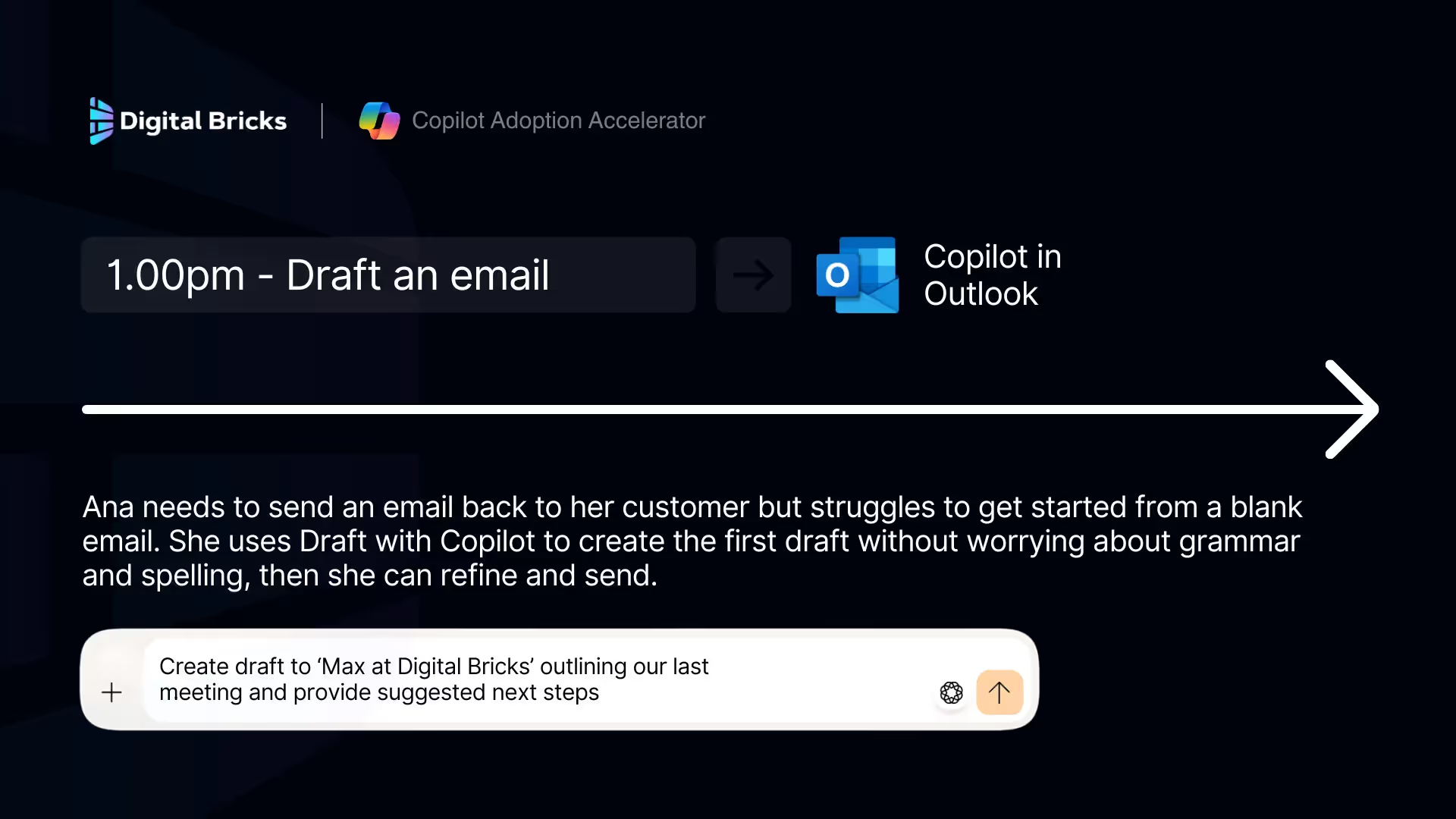
Copilot also bridges communication gaps across diverse abilities. For example, Moufarrege has shown that when meeting with deaf colleagues, he can speak into the Copilot app on his phone and Copilot will instantly relay the message in text. This kind of real-time transcription makes in-person and remote meetings accessible. In essence, Copilot turns spoken conversations into written form for those who need it. Even customizing emails for different audiences becomes easier: Copilot can rewrite a message in multiple tones or languages, so a dyslexic user can communicate precisely without extra effort. All of these tools – from chat summarizers to voice-to-text – ensure that no one is left out of the conversation and that everyone can participate confidently.
Taken together, these features help build a genuinely inclusive workplace. Copilot is a core example of what “neurodivergent technology” can be: it acknowledges diverse ways of thinking and adapts tasks accordingly. By reducing barriers in everyday work, Copilot helps dyslexic and other neurodivergent employees focus on their strengths. Decision-makers should note the big-picture impact: in surveys, over 90% of neurodivergent users call Copilot a valuable assistive tool, and 85% say it supports inclusion. As one participant put it, generative AI “improves the day-to-day working experiences for disability and neurodiversity communities”.
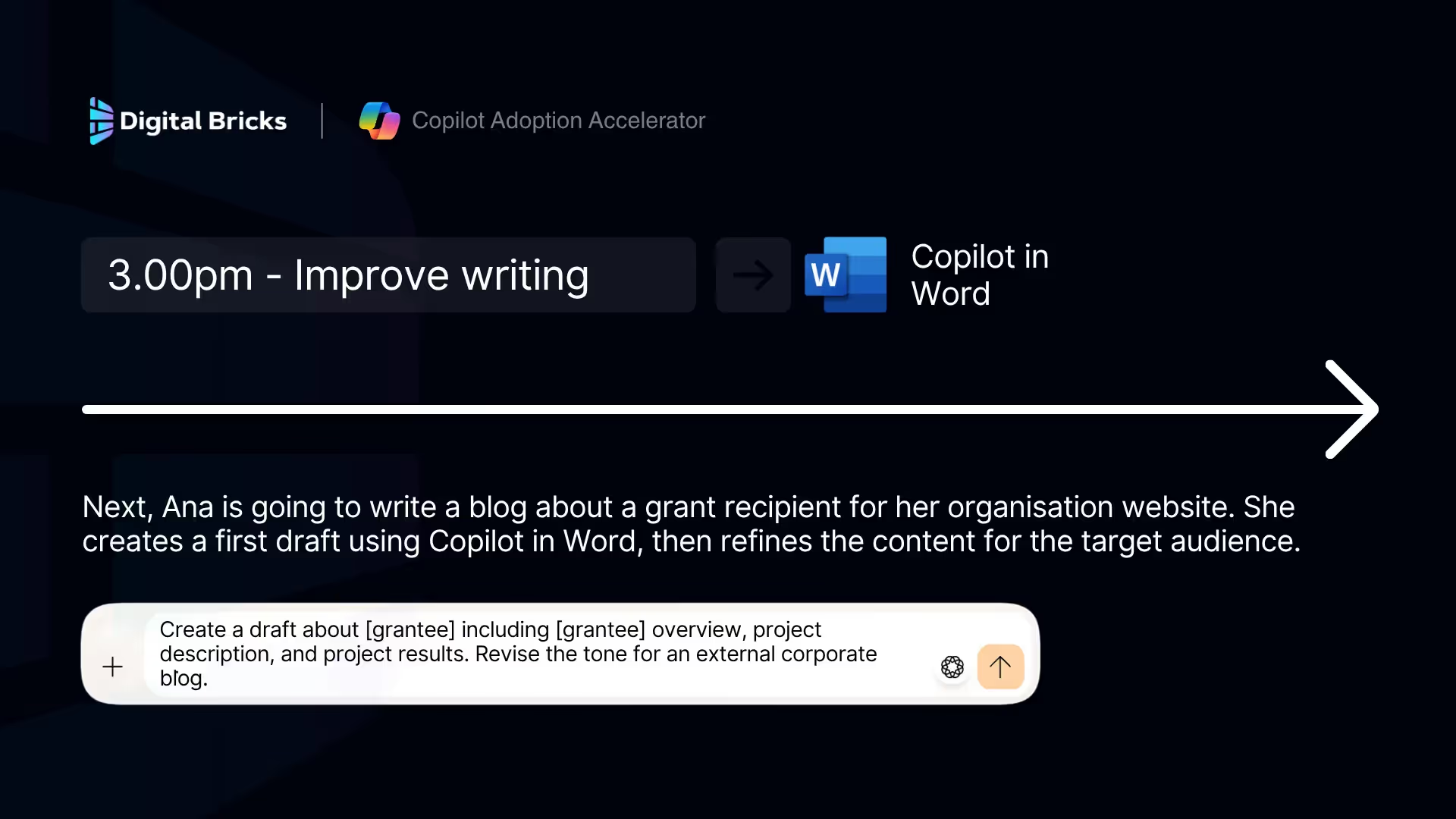
With over half of today’s younger workforce identifying as neurodivergent investing in tools like Copilot is urgent. It signals that the company values diverse talent and provides the same opportunities for all. Copilot’s impact has been tangible: companies like Australia Post and GHD report that neurodiverse team members feel less stressed and more capable on the job. For instance, GHD’s engineers used Copilot to condense lengthy safety reports into a simplified template, cutting days of work and “significantly reducing the mental load” of document review. These successes translate to a more engaged, productive workforce and a culture where technology works for the person, not the other way around. In short, inclusive AI like Copilot turns accessibility into a competitive advantage.
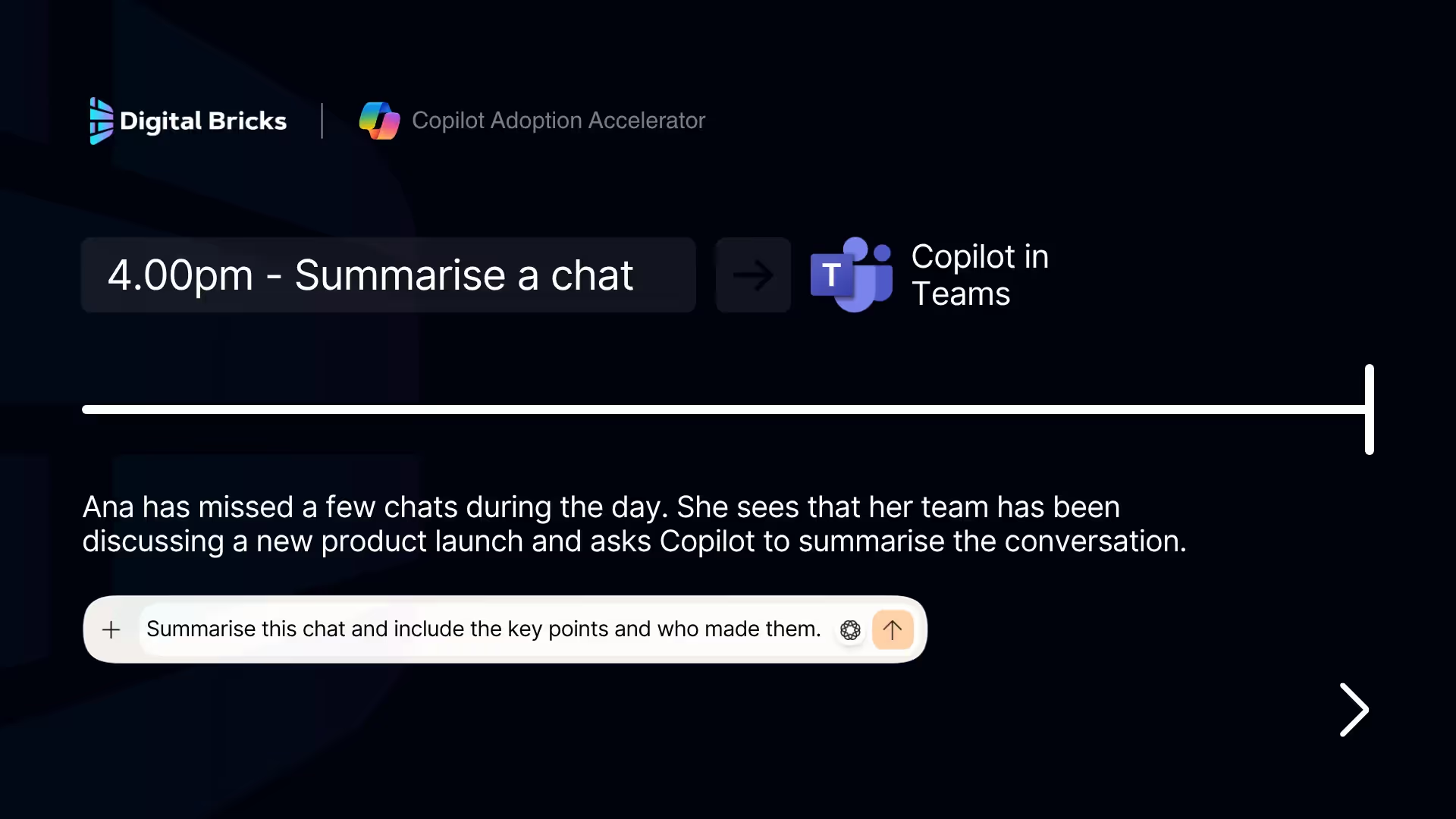
Of course, decision-makers also care about ethics and safety. Microsoft has built Copilot under responsible AI principles – ensuring privacy, transparency, and fairness. Copilot only uses an individual’s own data (you won’t see someone else’s docs), and users have control over its suggestions. Importantly, Copilot is not about “fixing” neurodivergence or forcing everyone to think alike. As one engineer with autism emphasized, the goal is to enhance what we already bring, not erase our unique thinking styl. For example, he uses Copilot to convert content between formats in ways that fit his visual brainstorming method. This human-centric approach means Copilot supports individual needs – it’s inclusive AI in practice. Companies adopting Copilot can do so confidently, knowing it is designed to empower every mind responsibly.
Microsoft Copilot turns cutting-edge AI into a practical ally for dyslexic and neurodivergent professionals. By simplifying reading, automating summary and drafting tasks, and smoothing communication, it lightens cognitive load and builds confidence. Every feature – from grammar checking to meeting recaps – contributes to a more accessible, inclusive workplace. For businesses, adopting Copilot means harnessing AI for dyslexia and beyond, showing employees that technology is on their side. In the end, Copilot’s impact is clear: it transforms frustration into empowerment and makes work better for everyone.
Take a deeper dive into Digital Bricks' Copilot Adoption Accelerator here.